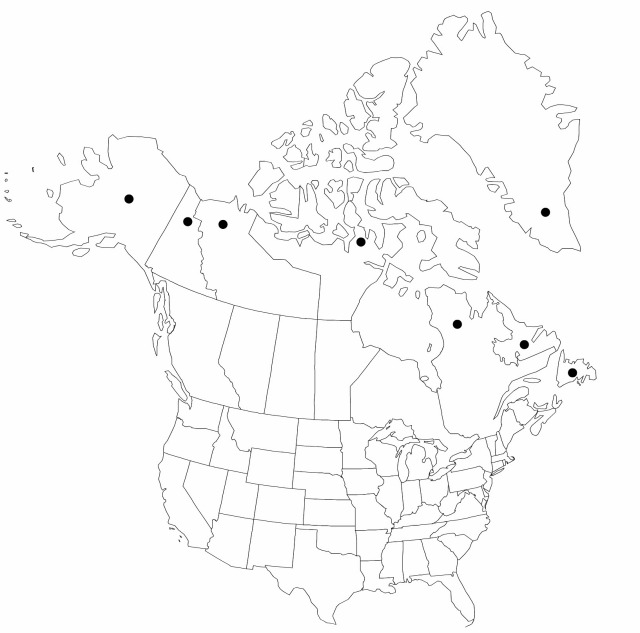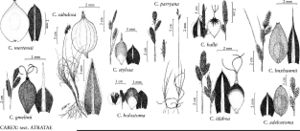Difference between revisions of "Carex holostoma"
Naturhist. Tidsskr. 3: 447. 1841.
FNA>Volume Importer |
FNA>Volume Importer |
(No difference)
| |
Revision as of 21:10, 16 December 2019
Plants loosely cespitose, long-rhizomatous. Culms 10–30 cm, distally finely scabrous. Leaves 1.5–3 mm wide. Inflorescences: proximal bract shorter than or equaling inflorescences; spikes contiguous, overlapping, short-oblong or cylindric, 3–8 × 2–2.5 mm; proximal spikes sometimes erect, distinct, separate, short-pendunculate; lateral 1–2(–3) spikes pistillate, of similar length; terminal spike staminate, spikes can be hidden by larger, overtopping lateral spikes. Pistillate scales dark brown or black, margins hyaline, ovate, shorter or equaling, as broad as perigynia, midvein lighter colored than body, conspicuous, sometimes raised, prominent, mucronate. Perigynia ascending, brown, obscurely veined, elliptic or obovate, 2–2.5 × 1.25–1.75 mm, apex beakless or abruptly beaked, papillose; beak to 0.2 mm, truncate, smooth. Achenes nearly filling body of perigynia. 2n = 60.
Phenology: Fruiting Jul–Sep.
Habitat: Lakeshores, meadows, fens, bogs
Elevation: 0–500 m
Distribution

Greenland, Nfld. and Labr., N.W.T., Nunavut, Que., Yukon, Alaska, arctic Eurasia.
Discussion
Carex holostoma has most likely been overlooked and has a more continuous range than indicated.
Selected References
None.
